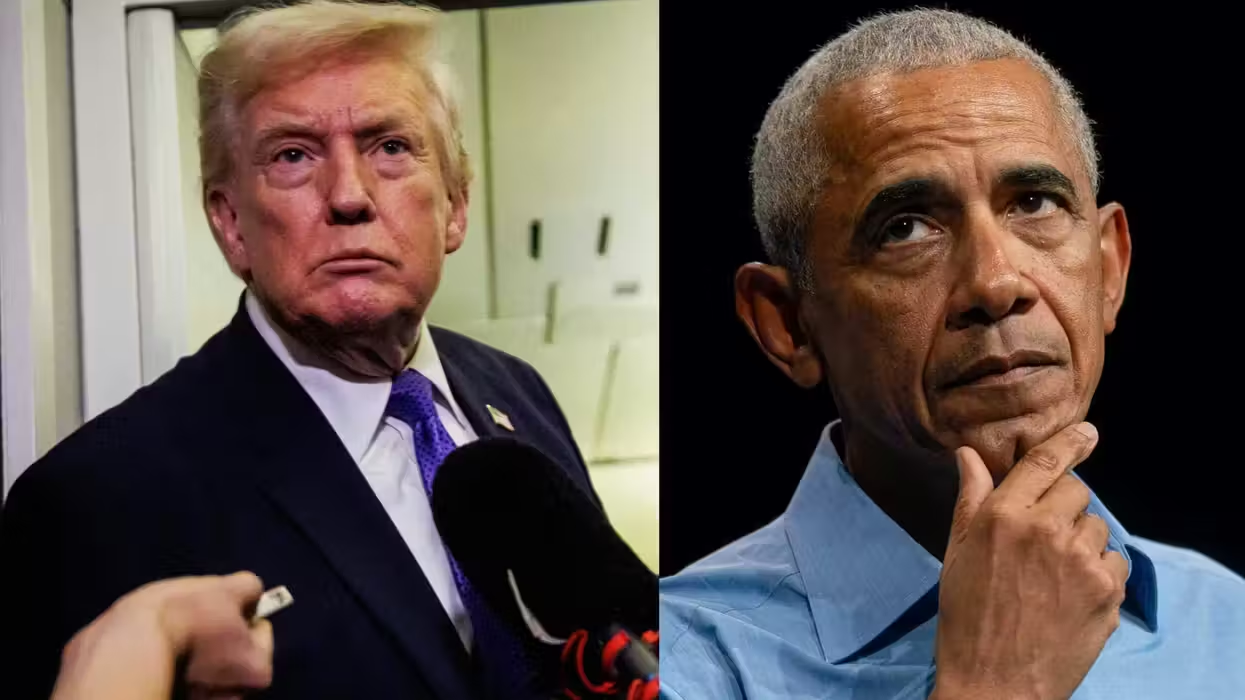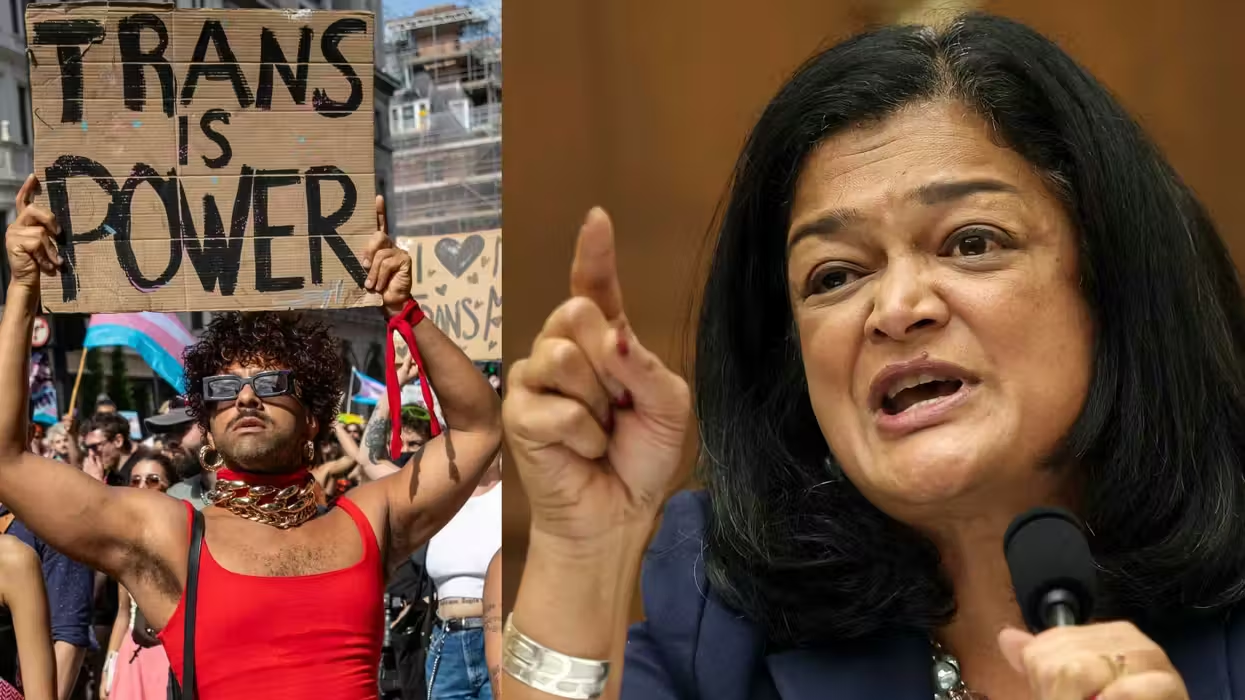An independent federal agency is openly questioning the constitutionality of new rules passed by Congress aimed at allowing the Veterans Affairs secretary to fire senior employees involved in the VA health care scandal.
The Merit Systems Protection Board on Tuesday published a rule implementing the new guidelines for firing or demoting VA officials. While the rule appears to faithfully implement the changes demanded by Congress, it also includes a few curious lines indicating that the MSPB believes the rules violate the Constitution.
 House Veterans Affairs Committee Chairman Jeff Miller (R-FL) (R) and Senate Veterans Affairs Committee Chairman Bernie Sanders (I-VT) worked to pass legislation allowing for the quick firing of VA officials. But an independent agency is questioning the constitutionality of the bill. Chip Somodevilla/Getty Images
House Veterans Affairs Committee Chairman Jeff Miller (R-FL) (R) and Senate Veterans Affairs Committee Chairman Bernie Sanders (I-VT) worked to pass legislation allowing for the quick firing of VA officials. But an independent agency is questioning the constitutionality of the bill. Chip Somodevilla/Getty Images
The agency says it supports any effort to improve the lives of veterans, but then adds:
"Nevertheless, the MSPB has concerns regarding the constitutionality of section 707 of the act. Specifically, the MSPB questions the constitutionality of any provision of law that prohibits presidentially appointed, Senate-confirmed officers of the United States government from carrying out the mission of the agency to which they were appointed and confirmed to lead."
The commentary could be seen as an invitation to file a legal challenge against the new rules, which conceivably could come groups representing federal workers.
The MSPB declined to comment on the inclusion of this language within the rule. But in an August 1 letter, the three MSPB board members — all of which were appoint by President Barack Obama — wrote to Obama to warn that it has "very serious concerns" with the language.
"We believe that Section 707… is on weak constitutional footing," the letter said.
"Indeed, the Supreme Court has made clear that significant governmental duties, exercised pursuant to public law, must be performed by 'officers of the United States,' within the meaning of Article II of the Constitution," they wrote. "Moreover, various courts have suggested that Congress is not permitted to infringe on the right of the executive branch to enforce the laws, nor on the president's appointment or removal powers with respect to executive branch appointees, once confirmed."
They also warned that the law could set a "very dangerous precedent" of Congress undermining the ability of officials to carry out the law.
A House aide indicated frustration with the MSPB's decision to criticize the new law, and said the MSPB's point of view is unlikely to find support in the executive or legislative branches of Congress.
"Three members of the MSPB may have concerns about the law’s constitutionality, but 511 members of Congress plus the President of the United States don't," this aide said. "That's because the notion that it's somehow unconstitutional to fire failing VA senior executives for poor performance or corruption is preposterous."
The new firing guidelines were approved by Congress just before members left for their August break, as part of a law called the Veterans' Access to Care through Choice, Accountability, and Transparency Act. That bill, which President Barack Obama signed into law on August 7, sets up a new system that allows the secretary to decide on his own to fire or demote senior officials.
That new system is the result of anger from both Republicans and Democrats about how senior VA employees manipulated data to make it look like veterans were not waiting long to gain access to the VA's health care system. In reality, thousands of veterans were being denied care, and new evidence uncovered over the last week indicates that nearly 48,000 veterans may have died over the last 15 years while waiting to access the VA system.
Under the law as approved, the VA secretary has the right to fire or demote VA officials for misconduct. Targeted officials have seven days to file an appeal with the MSPB, and that quasi-judicial independent agency has 21 days to consider that appeal. If the MSPB cannot render a decision, the secretary's decision is final.
The six-page rule fleshes out those guidelines and does not change them in any substantive way.
After being in office for more than two weeks, VA Secretary Robert McDonald has not given any indication he will use his new power to quickly fire or demote senior officials, and in fact has tried to downplay the importance of getting rid of officials.
Read the MSPB's rule here:

 House Veterans Affairs Committee Chairman Jeff Miller (R-FL) (R) and Senate Veterans Affairs Committee Chairman Bernie Sanders (I-VT) worked to pass legislation allowing for the quick firing of VA officials. But an independent agency is questioning the constitutionality of the bill. Chip Somodevilla/Getty Images
House Veterans Affairs Committee Chairman Jeff Miller (R-FL) (R) and Senate Veterans Affairs Committee Chairman Bernie Sanders (I-VT) worked to pass legislation allowing for the quick firing of VA officials. But an independent agency is questioning the constitutionality of the bill. Chip Somodevilla/Getty Images






